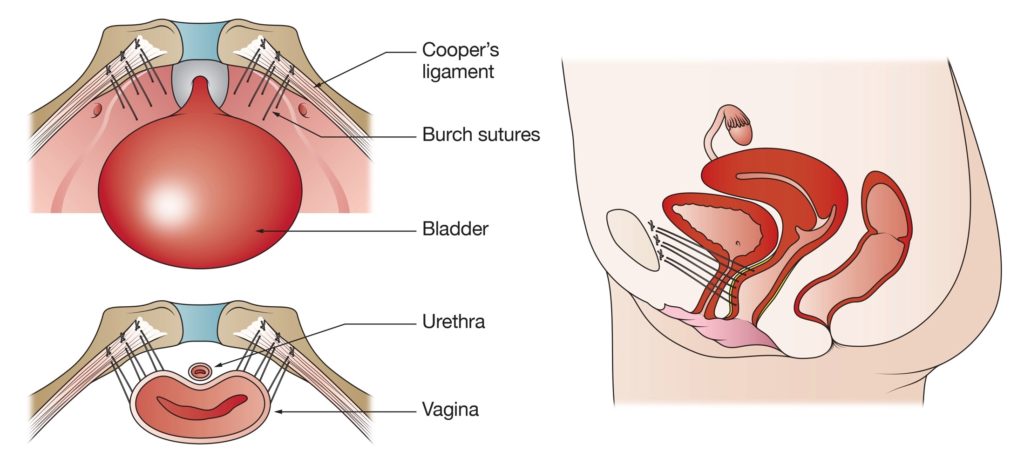
Urinary Incontinence & Prolapse Surgeries
Understanding Female Urinary Incontinence
Urinary incontinence is a common condition where there is involuntary leakage of urine. It can affect women of all ages and can significantly impact their quality of life. The most common types of urinary incontinence in women are:
- Stress Incontinence: Leakage occurs during activities that increase abdominal pressure, such as coughing, sneezing, laughing, or exercising.
- Urge Incontinence: A sudden, intense urge to urinate followed by involuntary leakage. It is often associated with overactive bladder.
- Mixed Incontinence: A combination of both stress and urge incontinence.
Treatment Options for Urinary Incontinence
At our clinic, we offer a range of treatment options tailored to the individual needs of our patients:
Conservative Management
- Pelvic Floor Exercises (Kegel Exercises): Strengthening the pelvic floor muscles can help improve bladder control.
- Bladder Training: Techniques to increase the intervals between urination and improve bladder capacity.
- Lifestyle Modifications: Weight management, dietary changes, and fluid management to reduce symptoms.
Medical Management
- Medications: Prescribing medications to relax the bladder or increase bladder capacity.
- Pessaries: Devices inserted into the vagina to support the bladder and reduce stress incontinence.
Surgical Management
- Midurethral Sling Surgery: A minimally invasive procedure where a synthetic mesh sling is placed under the urethra to provide support and prevent leakage.
- Colposuspension: A surgical procedure to lift and support the bladder neck and urethra.
- Bulking Agents: Injectable substances to thicken the urethral walls and help close the bladder opening.
Understanding Pelvic Organ Prolapse
Pelvic organ prolapse occurs when the muscles and tissues supporting the pelvic organs weaken, leading to the descent of pelvic organs (such as the bladder, uterus, or rectum) into the vaginal canal. This can cause discomfort, urinary problems, and other symptoms.
Treatment Options for Pelvic Organ Prolapse
We provide comprehensive treatment options for pelvic organ prolapse, including:
Non-Surgical Management
- Pelvic Floor Rehabilitation: Physical therapy to strengthen pelvic muscles.
- Pessaries: Devices to support the pelvic organs and alleviate symptoms.
Surgical Management
- Vaginal Surgery: Repairing prolapse through the vaginal route using native tissue or mesh.
- Laparoscopic Surgery: Minimally invasive techniques to correct prolapse with quicker recovery times.
- Robotic-Assisted Surgery: Advanced robotic technology for precision in prolapse repair.
Why Choose Us?
- Expertise: Dr. Santosh Agrawal has extensive experience in treating urinary incontinence and pelvic organ prolapse with a high success rate.
- Personalized Care: We provide individualized treatment plans to meet each patient’s unique needs and preferences.
- State-of-the-Art Facility: Our clinic is equipped with the latest technology to ensure the best outcomes for our patients.
- Compassionate Approach: We understand the sensitive nature of these conditions and offer compassionate care in a comfortable and confidential setting.
If you are experiencing symptoms of urinary incontinence or pelvic organ prolapse, please don’t hesitate to contact us to schedule a consultation. We are here to help you regain control and improve your quality of life.










